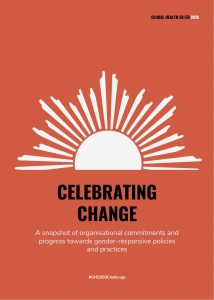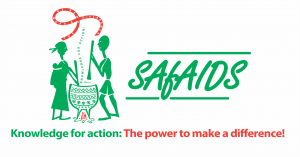Celebrating Change
In the hands of empowered citizens, advocates and policy-makers who know how to use it, data can be transformational. Through evidence and data, Global Health 50/50 seeks to open the door towards radical transparency, self-reflection and public awareness on issues of gender and gender inequality in global health. And in doing so, foster change.
The global health sector is responding to our findings and recommendations. Global organisations are making commitments, taking action and sharing progress on how they are improving gender-related policies and practices.
By promoting a collaborative norm which includes sharing best practice and examples of success, we can support other organisations and sectors to achieve positive change.
Celebrating Change campaign
In November 2018, Global Health 50/50 launched its Celebrating Change campaign. We encouraged organisations to make a public commitment relating to the indicators in our Gender and Health Index. Our accompanying brochure provides a snapshot of organisational commitments and progress towards gender-responsive policies and programmes.
Join the GH5050 Challenge
We encourage organisations, both included in our sample and outside it, to take our GH5050 Challenge. Our challenge asks organisations to:
- assess their performance, plan concrete actions for change using our report recommendations and get inspired by commitments from other organisations
- publicly declare these commitments for change to promote accountability
- share them with us to join our growing community of changemakers and allow others to learn from your efforts.
In response to the #GH5050Challenge, these organisations have made the following commitments along the seven domains of the 2018 Global Health 50/50 Report:
- Becton Dickinson
- Drugs for Neglected Diseases Initiative
- Engender Health
- Global Alliance for Improved Nutrition
- Global Handwashing Partnership
- Health Action International
- International Planned Parenthood Federation
- International Union Against Tuberculosis and Lung Disease
- Partners In Health
- Population Council
- Population Services International
- SAfAIDS
- Save the Children International
- UNICEF
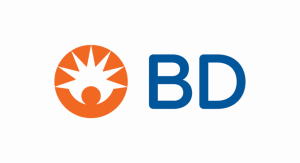
- We will publicly provide a definition for gender, as it relates to our programmes and policies, and seek to align it with that of WHO.
- We will communicate our commitment to gender equality more clearly in our Sustainability Reporting, including how it relates to our work on access to health and women’s health issues.
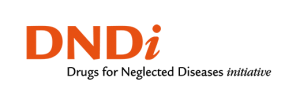
- We are preparing a longer-term plan that outlines work in the key areas of Governance, Organizational Culture, Leadership, Programmatic Work and External Representation, to be led by an internal Gender Working Group, which is now being constituted.
- In regard to our Board composition, an ongoing governance review will address the gender balance on the Board and the committees. The next DNDi Board meeting (in December 2018) will review the findings of the governance review and the recommendations aimed at gender balance at the level of the Board. Equally, when searching for new members, the Board has a policy to ensure gender balance in short listing candidates for Board membership and Board sub-committees.
- For executive team appointments, the same rules are applied and enforced in recruitment guidelines. To address candidate selection biases, we aim at systematically ensuring women are on finalists’ interview panels for senior leaders. In 2018, out of 5 Director positions appointed, we are pleased to confirm that three appointments were of female gender. The composition of the executive leadership has evolved since last year when it was exclusively composed of men: as of October 1st, our executive team has welcome two new female members (in a team of 8).
- We are committed to ensuring that gender equity is weaved and measured into HR policies and practises such as compensation and benefits, recruitment, performance management, training and development processes. We have issued Guidelines on the Prevention of Sexual Misconduct (including sexual harassment) and hired an independent Ombudsperson, and we will ensure that by end of 2019 all our offices have received training on sexual harassment.
- In regard to gender pay benchmarking, DNDi underwent an independent evaluation for the Geneva headquarters office. We are currently benchmarking our second largest office in Kenya through a standard salary review. Plans are being made for DNDi’s third largest office, in Brazil, to be benchmarked in 2019.
- Programmatic work and disaggregation of statistical data will be tackled. We have begun documenting how we can integrate better gender and drug development, with aim to develop a first proposal in 2019.
- All information on gender equity and plans have been shared with DNDi’s Board who are fully committed to the gender equity agenda. In addition, we have consulted with our staff representatives and communicated plans to our staff, and shared key statistics prepared by the HR department, with an aim to refresh at annual interviews.
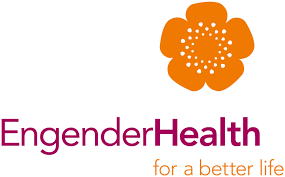
- We commit to developing a strategic gender programming policy that will be integrated across all programmatic work.
- We commit to developing an internal organisational workplace gender strategy by June 2019.
- We strive to publish gender pay gap data in the future.
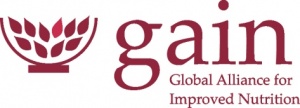
- By the end of 2018, we commit to make our internal workplace gender policy publicly available on our website.
- We are reviewing the way we publicise, describe and recruit for senior posts to ensure that we are not inadvertently deterring women candidates. We will complete this review and revise our recruitment materials, if necessary, by March 31, 2019.
- We are actively searching now for additional outstanding women candidates to join our Board. We commit to improving the gender balance on the Board during 2019. We will also prioritise women candidates when we next appoint to the Partnership Council (which is currently fully populated). Currently there are 10 women and 15 men on the Council.
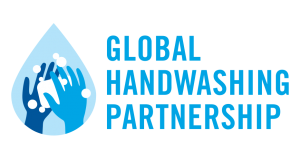
- Our website now includes a statement of our commitment to equity.

- The publication of the report has pushed us towards transparency of our organisational culture of gender equality.
- HAI’s Gender Policy defines specific commitments to gender equality within our organisational culture, as well the work programmes that we implement and/or support. Ratification of the new Gender Policy by the HAI Foundation Board and its full implementation took place in June 2018.
- HAI has also endorsed the definition of gender as formulated by the World Health Organization.
- The Gender Policy commits the organisation to mainstreaming gender equality in its work in the areas of design and planning and programme implementation. Partners are also required to sign the gender policy, business conduct guidelines and safeguarding policy as part of the contracting process. The Policy further commits us to disaggregate our monitoring and evaluation data.

- We commit to resourcing the roll-out and implementation of a programmatic gender strategy, linked to the design of our new Secretariat Business Plan.
- We commit to appointing gender champions to advance gender equality programming as well as women’s rights and parity within our organisation.
- We commit to reflecting the gender equality policy in our Code of Conduct and in all Safeguarding policies.
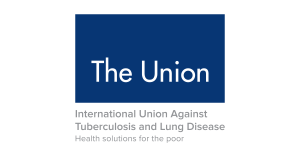
We commit to use the findings of the GH5050 Report to advance gender equality in our organisation.
- Website: We recognize the need to be more intentional in externally promoting content that spotlights our existing work in areas that benefit women and children. We are in the process of revisiting our global content strategy and, as part of this important effort, we will audit content balance to make sure we highlight such initiatives. We will also take a close look at creating an institutional section of our website to highlight our Gender Definition, Organizational Stance on Gender Equality and Gender Equity, LGBTQ inclusiveness, and relevant impact numbers.
- Social Media: We will intentionally balance content we post on our social media platforms. In particular, we believe there is room to take a more active advocacy stance when it comes to themes such as gender equality/equity, empowering girls and women through education, health care, family planning, and socio-economic independence.
- Thought Leadership: We will continue to leverage our numerous female leaders to obtain a position of influence when it comes to promoting the importance of a well-diversified workforce, both at the peer level and in regard to our global staff. PIH’s approach is clear when reviewing the ratio of our community health workers, who are mostly female. At the peer level, we aspire to participate in more forums and conferences and share our values and learnings with a broader base of international organizations.
- Data Reporting: Recently, with generous support from Wagner Foundation, PIH launched a comprehensive data analytics project called the “Impact Initiative.” This project, which is initially focused on maternal health, will enable us to better capture and report programmatic data and results. Such disaggregated data and insights will allow us to tell more powerful stories of impact benefiting women and children.
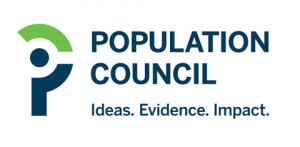
- We commit to utilise the WHO definition of gender.
- While our Equal Employment Opportunity policy mentions gender, “gender identity,” and encouraging applications from women, we are now including a specific commitment for the human resource team to work with colleagues in the programme, division and/or office to locate qualified candidates regardless of gender, gender identity or sexual orientation. In addition, as the Council is international in the composition of its Board of Trustees and staff, as well as in the nature and deployment of its activities, we seek to further internationalize our staff at all levels.
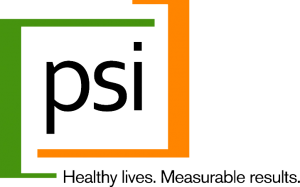
- We will define, document and make transparent the organisation’s formal commitment to gender equality.
- We will review and refine our strategy to mainstream our commitment to gender equality with special focus on workplace policies, systems and procedures.
We are committed to addressing gender disparity in both our management team and our Board. We currently have four Board vacancies, for which the Board has agreed to consider only women candidates. We are also reviewing our policies to be more explicit in support of achieving 50×50 parity at all levels. Going forward, all recruitments will be considered in light of fulfilling the 50/50 policy.
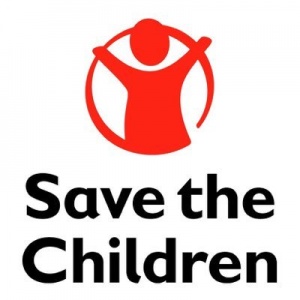
- We will work to expand our current gender policy, which focuses on how we will achieve gender equality with beneficiaries through our programming, to also include achieving gender equality in our staff engagement.
- We will continue to place an emphasis on gender diversity at the global board and leadership level.
- We will continue to publish our gender pay gap information annually for colleagues based in the UK. Committed actions from the 2017 data include:
- undertaking a UK equal pay audit by the end of the year and take any corrective action if applicable, which will ensure that our gender pay gap is not in any way driven by pay practice;
- reviewing our family leave entitlements;
- working to ensure our jobs adverts have gender-neutral language and are advertised with flexible working options where possible;
- recruiting through a variety of channels and consider non-traditional sources where we have a gender imbalance for particular roles or grades;
- reviewing our Flexible-Working Policy to increase flexible working options;
- auditing a sample of recruitments to ensure the panel, shortlists and appointments were gender balanced; and
- introducing gender-bias training as part of the training programme for leadership positions.
![]()
- We at UNICEF are pleased to step up to the Global Health 50/50 challenge and commit to reporting sex-disaggregated data on programmatic delivery annually.
- We further commit to monitoring and reporting progress for gender parity of our senior management annually.
Global organisations are also sharing their plans and progress in improving gender-related policies and practices with GH5050.
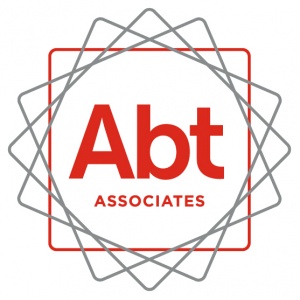
This year, we launched the Gender, Equity and Inclusion (GEI) Working Group tasked with documenting the range of GEI integrated projects, reviewing gender and social inclusion indicators in our current projects, and incorporating capabilities, resources, and standards in current and future plans for our work. Parallel to analyzing the work provided to our clients, this working group is also tasked with analyzing and continuously leading new company initiatives to cultivate equity and social inclusion throughout Abt.
This year, we rolled out an enhanced Parental Leave Policy for U.S., Expat, and TCN employees, implementing post-birth and -adoption paid time off, and providing financial adoption assistance. The policy has been approved to include our Australia and UK subsidiaries. Corporate offices now provide nursing mothers a private, secure, and comfortable room to express milk and store milk in a private refrigerator. In Kenya, we are currently piloting a program for nursing mothers who are required to travel to field offices for official duties, paying the additional costs incurred by the mother for her to be accompanied by her baby and nanny.
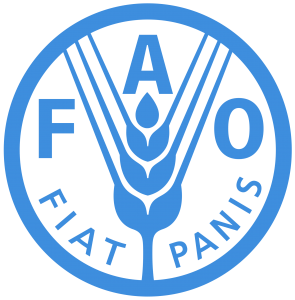
- FAO is promoting gender equality and gender parity in staffing. Analysis of the gender composition of staff is available online. FAO is developing a customised implementation plan on Gender Parity, which is aligned with the UN System-wide Strategy on gender parity launched in September 2017. This plan will include promoting gender parity at the senior management level.
- FAO is intensifying efforts to provide sex-disaggregated data on key work programmes. FAO is systematically integrating gender analysis in its flagship publications. Based on this information, the Organisation will further advance gender equality in food security and nutrition.
- FAO has established an Action Plan, in particular to identify concrete actions to ensure total enforcement of the rules aimed at creating and promoting a working environment that prevents sexual harassment, sexual exploitation and abuse.
![]()
Gender Assessment of Human Resources Policies and Practices: The purpose of this exercise is to evaluate whether any aspects of our policies and practices may inadvertently adversely impact a certain gender. This assessment is expected to begin in Q4 2018 with a completion date estimated in Q1 2019. We hope that this evaluation will help us identify potential root causes of any imbalances. Should any issues be identified, we are committed to considering remedial action recommended by the external provider running this project for us.
Equal Salary Certification: Our goal is to obtain official Equal Salary Certification to demonstrate that the Global Fund applies fair wage policies and practices. We have retained an external service provider to conduct an analysis of our salaries and associated processes, which will be submitted to the Equal Salary Foundation for consideration. Work on this project is expected to start in October 2018 and the initial evaluation is expected to be complete within Q1 2019. Should any salary inequity trends be identified during the evaluation phase, the Global Fund is committed to considering measures for closing the gaps and adopting practices which will help limit salary variances between genders.
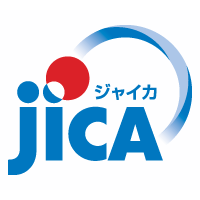
We are committed to having women in 20 percent of senior management and to having gender equality project in more than 40% of all projects by the end of March 2022.
![]()
Medtronic believes inclusion is vital to creating a vibrant, healthy and diverse workplace that reflects the world in which we live and work. We are on track to achieve our 2020 goals for inclusive and diverse representation at leadership levels—and we continue to identify new ways to engage both within our organisation and with the communities and people we work with every day, including physicians, healthcare systems, payers and patients. An inclusive workplace not only encourages employees to be their best selves and create an enriching work experience, but it also helps us drive better decision-making as we apply innovation and ideas to address the needs of people we serve around the world. We share additional information about our goals and programs to increase inclusion and diversity in our annual Integrated Performance Report, which can be found at http://www.medtronic.com/us-en/about/corporate-social-responsibility.html.
![]()
We recently pledged to help accelerate the pace towards equal pay for equal work. The pledge, which was made during the UN General Assembly, held on 26th September 2018 in New York, states: “At Nestlé we aim to provide a workplace that generates equal opportunities for everyone, and in which people are treated with dignity and respect. In line with our commitment to enhance gender balance at all levels in our workforce, we further pledge to work to achieve equal pay for our employees.” More information about our pledge can be found here: https://www.nestle.com/media/news/epic-nestle-makes-equal-pay-pledge
![]()
Novartis is a signatory to the Women’s Empowerment Principles launched by the United Nations Global Compact (UNGC) and the United Nations Development Fund for Women.
As a testimony of our commitment to gender equality and equal pay, on September 26, 2018, Novartis joined the United Nations Equal Pay International Coalition (EPIC) organized by the ILO, UN Women and OECD. As part of this, we made a public pledge “to conduct regular gender pay equity analyses and remediate annually as appropriate. To help prevent pay differences, we pledge to eliminate the use of historic salary data when making internal and external offers. Additionally, we commit to pay transparency by sharing with our associates their pay as compared to internal and external benchmarks. We remain committed to achieving a gender-balanced representation in management in the next five years.
Further, in an effort to improve health outcomes for women, we have established a working group to assess gender disparities in healthcare, with a focus on chronic diseases, in particular chronic obstructive pulmonary disease, cardiovascular disease and diabetes. This work will help inform recommendations on how to address this gap.
Every year, we publish people performance indicators, including women in management metrics, in our Corporate Responsibility Report and Annual Report (page 29): https://www.novartis.com/sites/www.novartis.com/files/novartis-annual-report-2017-en.pdf
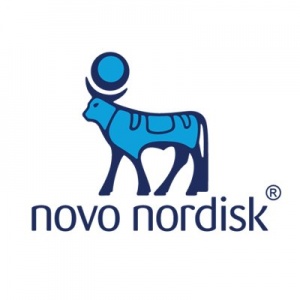
In Novo Nordisk, we are particularly focused on increasing gender parity in our senior management and Board of Directors.
![]()
Philips is dedicated to move the needle on this topic – through our human resources strategy, processes and systems, our Foundation (access to healthcare) as well as our commitment to increase the number of women at the top.
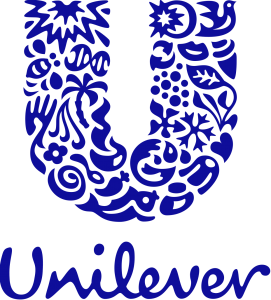
Within our workplace, we run a programme called ‘Unstereotype the Workplace’ which supports all forms of diversity, removing the limiting power of stereotypes and unconscious bias. We do this by raising self-awareness and also designing key processes and systems in a way that helps employees make objective choices. For example, re-engineering the recruitment process to use an intelligent bot at initial screen and blind CV’s to minimise bias. As gender continues to be a focus (2017, 47% of our total management were women, up from 38% in 2010), we are working to increase the ratios at our most senior levels (22%).
We run initiatives such as INSEAD Women’s Leadership Development Programme, which aims to enhance the leadership skills of our senior female executives and talented women from other sectors. We have also implemented senior management sponsorship of future female talent and ask our hiring managers to use ‘balanced slates’ (which means an equal number of qualified female and male candidates) to make sure there’s a level playing field of talented people to promote.

